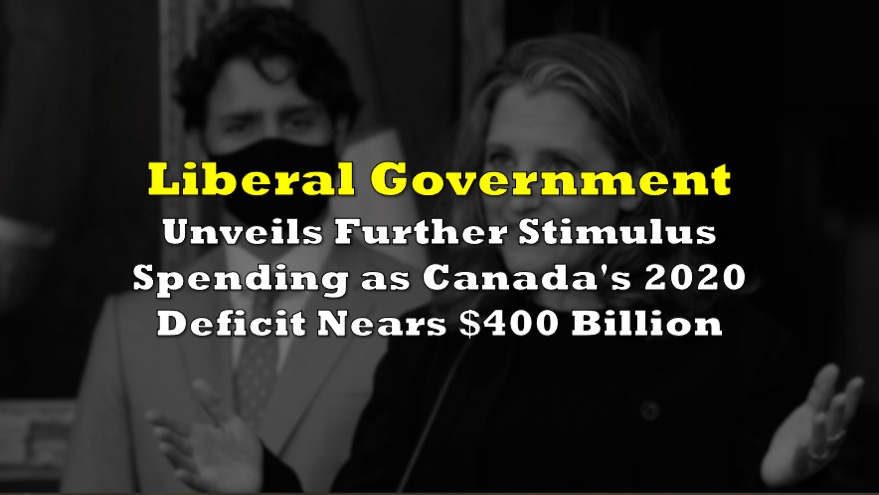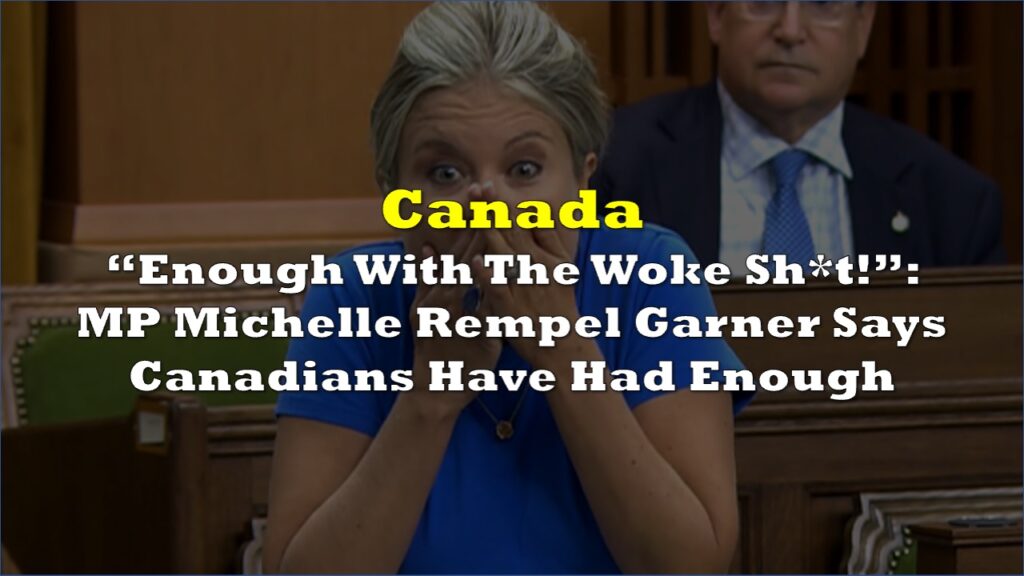Canada’s Liberal government, which is currently pushing the largest 2020 deficit spike compared to all other major economies in the world, has just announced – yes, you guessed it – more fiscal spending.
On Monday, Finance Minister Chrystia Freeland announced another $51.7 billion in new spending over the next two years, with a large portion being allocated towards the enhancement of the wage subsidy for businesses. But wait, there’s more! Freeland also revealed that the Liberal government will be allocating a further $70 billion to $100 billion (in other words, opening the spending tap full-bore) in additional stimulus over three years to prop-up the country’s economic recovery.
Among the several spending plans announced today, the federal government vowed to continue the wage subsidy program, boosting its funding to cover up to 75% of businesses’ payroll costs. Moreover, Freeland also said that the commercial rent subsidy, as well as other remaining lockdown support top-ups will be extended until March. The recently announced emergency spending promises are nowhere in the fiscal framework, as the finance minister noted that the aid will be delivered whenever needed.
Thus in other words, the Liberal government will likely not stray from its “unlimited spending” mantra. However, Freeland did provide some reassurance, exclaiming that fiscal caution will be exercised as significant structural spending plans will be put off for the foreseeable future, whilst promising that further stimulus will only be temporary. On the other hand though, the Liberal government is also planning to allocate funding to climate change, with $2.6 billion going towards efficiency grants for homeowners, as well as another US$150 million for implementing additional vehicle charging stations across Canada.
However, the infinite fiscal spending doesn’t stop there: the Liberal government also unveiled that it will be bailing out the airline industry to the tune of $796 million, in exchange that major air carriers bring back regional routes that were eliminated amid subdued demand, as well as refund fares to travellers that had their flights cancelled as a result of the pandemic. A breakdown of the airline support entails $206 million for regional air transportation spanning this year and the next, $186 million for small and regional airports beginning in 2021 and lasting for two years, and a maximum of $500 million for large airports that will be administered via a new transfer payment program over a span of six years.
In addition, major airports will have their rent relief extended by an additional $229 million, including waiving rent payments for small and medium-sized airports and allowing larger airports to defer rent payments into 2021, with repayment scheduled staggered over a span of 10 years starting in 2024. Airport authorities will also receive $65 million in new funding come 2021 and 2022, followed by VIA Rail Canada receiving $188 million to help offset its operating losses over the next two years.
Now, given the considerable spending announcements, one more money question remains: where will Canada’s deficit sit after all of this? Well, Freeland revised the projected deficit to hit $381.6 billion, or 17.5% of the country’s GDP. To put it into further context though, last year’s deficit was only 1.7% of GDP levels, meaning that Canada is now the only country to undergo such a steep fiscal swing relative to the world’s all other major economies, according to the International Monetary Fund. In total, the Liberal government’s fiscal response to the coronavirus pandemic accounted for over $275 billion of the 2020 deficit, with a gap of $121 billion projected in 2021.

Information for this briefing was found via the Government of Canada and the IMF. The author has no securities or affiliations related to this organization. Not a recommendation to buy or sell. Always do additional research and consult a professional before purchasing a security. The author holds no licenses.









